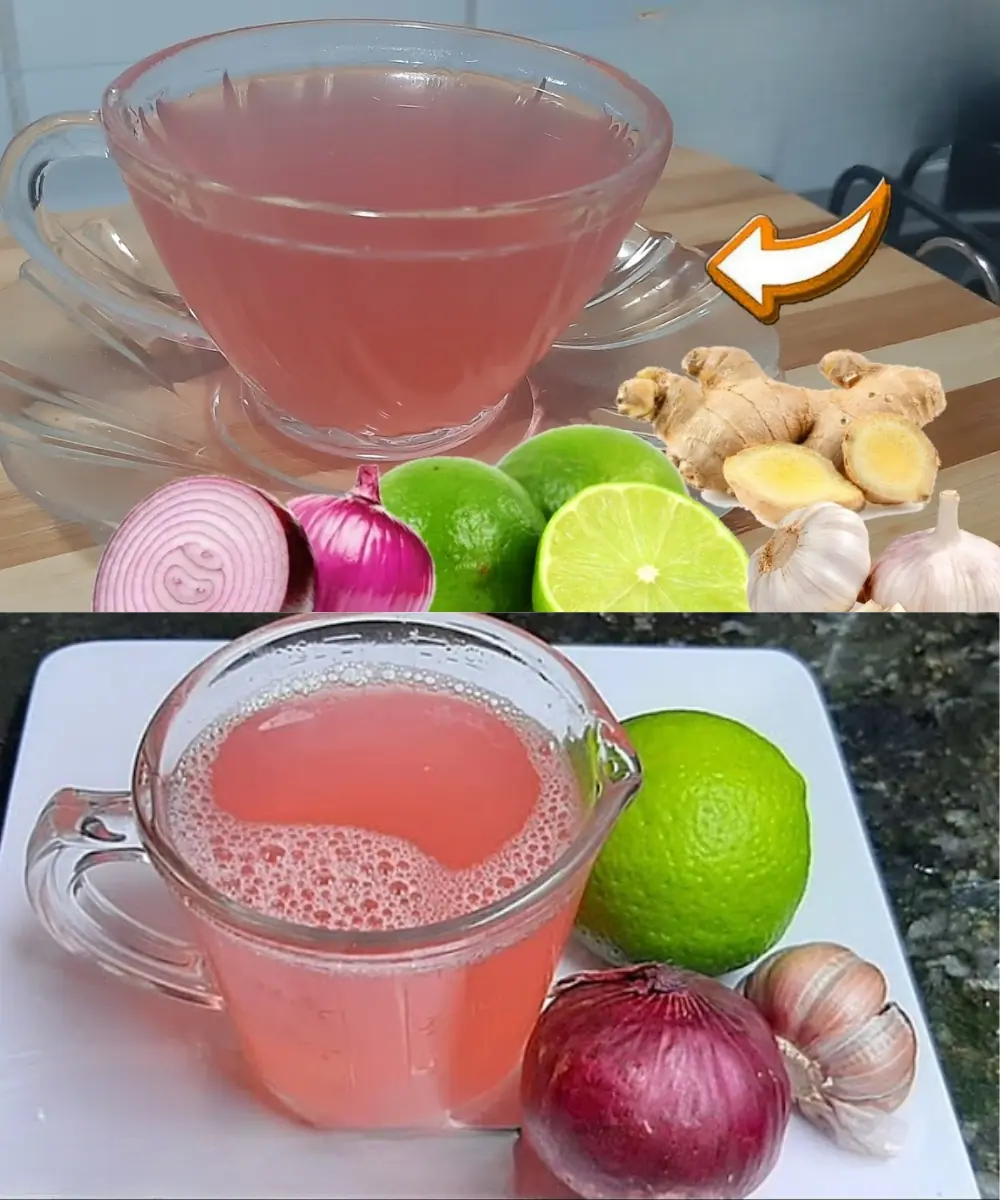
Healthy 2025-10-19 00:33:34
Juniper Berries: Ancient Remedy for Digestion, Immunity & Cleansing

Juniper berries may be small, but they’ve been used for thousands of years as powerful natural medicine. Despite their name, they’re not true berries — they’re fleshy seed cones from evergreen trees like Juniperus communis or Juniperus virginiana. Packed with essential oils, antioxidants, and antibacterial compounds, they’ve been used in traditional herbal remedies across Europe, Asia, and Indigenous American cultures.
⚠️ Important Warning! Not all juniper species are edible. Make sure to use only safe varieties such as Juniperus communis or Juniperus virginiana, as some types can be toxic if consumed.
✅ Key Health Benefits of Juniper Berries
1. Supports Digestion & Reduces Bloating
Juniper stimulates digestive enzymes and helps the body break down heavy meals. It’s especially known for easing gas, cramps, and indigestion.
2. Natural Diuretic & Detox Support
Often used to flush excess water, relieve urinary discomfort, and support kidney and bladder health.
3. Anti-Inflammatory & Pain Relief
Juniper berry tea has been traditionally used for joint pain, muscle aches, and cold-weather stiffness.
4. Respiratory Support
Its antimicrobial and expectorant properties make it useful for coughs, sore throats, and congestion.
5. Immune Protection & Antioxidants
Rich in vitamin C, flavonoids, and essential oils, juniper helps fight oxidative stress and protects cells from inflammation.
☕ How to Make Juniper Berry Tea
Ingredients:
1 teaspoon of dried juniper berries (or 2–3 fresh, lightly crushed)
1 cup of hot water
Optional: slice of lemon 🍋 or a bit of honey 🍯
Instructions:
Lightly crush the berries to release their oils.
Pour hot (not boiling) water over them.
Cover and steep for 10 minutes.
Strain and sip slowly.
Best enjoyed after meals or before bedtime for calm digestion.
🌿 Other Ways to Use Juniper Berries
Use Method
Spice Blend Grind and mix with salt, pepper, rosemary for meat or roasted veggies
Infused Honey or Oil Add berries to honey or olive oil for a warming digestive remedy
Scent Sachets or Simmer Pot Boil with citrus and cinnamon to freshen the home
⚠️ Precautions
Use only edible species (Juniperus communis or Juniperus virginiana).
Avoid during pregnancy, as juniper may stimulate uterine activity.
Not recommended for people with severe kidney issues.
Do not consume in large amounts — limit tea to 1 cup per day for no more than 2–3 weeks at a time.
🌟 Final Thought
Juniper berries are more than just “gin flavoring”—they’re a time-tested herbal ally for digestion, immunity, pain relief, and cleansing. Whether brewed as tea, infused in honey, or used as seasoning, they bring warmth and strength from the wild.
News in the same category


Don’t Drink Coconut Water Before You Know These 11 Secrets!

Pumpkin Seed Milk — The Natural Parasite Cleanser

Fast Rice Water Trick for a Brighter Smile

Morning Drink to Revive Your Kidneys Fast

The Onion Recipe That Could Transform Your Blood Sugar, Support Cleaner Arteries, and Protect Your Heart!

Top 4 Fruits That Help Your Kidneys Flush Out Toxins While You Sleep

Ginger, Clove, and Honey: The Natural Trio Your Body Will Thank You For

Heal 15 Years of Joint Pain Naturally with Turmeric and Honey Tea

This Juice Revived My Grandma’s Energy — Say Goodbye to Fatigue and Body Pain with This Natural Recipe

I’m 66 but Look 36 — My Secret? Aloe Vera & Ginger for Firm, Smooth Skin

How to Make Okra Water to Treat 17 Health Problems Naturally

Banana and Egg Mask to Look Younger Even in Your 80s

Scent Leaf Secrets Unveiled: 10 Surprising Health Benefits of This Miracle Herb

From White Hair to Black Hair Naturally in Just 5 Minutes — Fast Hair Growth Remedy

Boost Your Immune System Year-Round with Garlic, Onion, and Lemon

When You Start Eating 2 Eggs Every Day, Here’s What Happens to Your Body (Is It BAD??)

13 Warning Signs Your Kidneys Are Failing – Don’t Ignore These Symptoms

Save Your Heart: 8 Foods to Naturally Lower Cholesterol

Silent Signs of Artery Blockages Seniors Can’t Ignore
News Post

WHAT HAPPENS WHEN WE TONGUE KISS…See more
Fitness 30/10/2025 13:23

Nature’s Secret: 4 Healing Leaves That Support Metabolism, Immunity & Circulation Naturally
Healthy 27/10/2025 19:23

Don’t Drink Coconut Water Before You Know These 11 Secrets!
Healthy 27/10/2025 19:21

Pumpkin Seed Milk — The Natural Parasite Cleanser
Healthy 27/10/2025 19:19

Fast Rice Water Trick for a Brighter Smile
Healthy 26/10/2025 22:42

Morning Drink to Revive Your Kidneys Fast
Healthy 26/10/2025 22:38

The Onion Recipe That Could Transform Your Blood Sugar, Support Cleaner Arteries, and Protect Your Heart!
Healthy 26/10/2025 22:37

Top 4 Fruits That Help Your Kidneys Flush Out Toxins While You Sleep
Healthy 26/10/2025 22:35

Ginger, Clove, and Honey: The Natural Trio Your Body Will Thank You For
Healthy 26/10/2025 19:06

Heal 15 Years of Joint Pain Naturally with Turmeric and Honey Tea
Healthy 26/10/2025 19:04

This Juice Revived My Grandma’s Energy — Say Goodbye to Fatigue and Body Pain with This Natural Recipe
Healthy 26/10/2025 19:02

The Benefits of Eating 2 Boiled Eggs Every Morning: Transform Your Health!
Health News 26/10/2025 01:57

If Your Kidneys Are in Danger, Your Body Will Send You These 8 Signals — Don’t Ignore Them
Health News 26/10/2025 01:54

The Surprising Effects of Avocado on Your Heart and Brain
Health News 26/10/2025 01:44

Ways to Get Over a Man Who Didn’t Value You
Fun Fact 26/10/2025 01:36

I’m 66 but Look 36 — My Secret? Aloe Vera & Ginger for Firm, Smooth Skin
Healthy 25/10/2025 19:44

How to Make Okra Water to Treat 17 Health Problems Naturally
Healthy 25/10/2025 19:42

Banana and Egg Mask to Look Younger Even in Your 80s
Healthy 25/10/2025 19:29

Scent Leaf Secrets Unveiled: 10 Surprising Health Benefits of This Miracle Herb
Healthy 25/10/2025 19:24

From White Hair to Black Hair Naturally in Just 5 Minutes — Fast Hair Growth Remedy
Healthy 25/10/2025 19:22